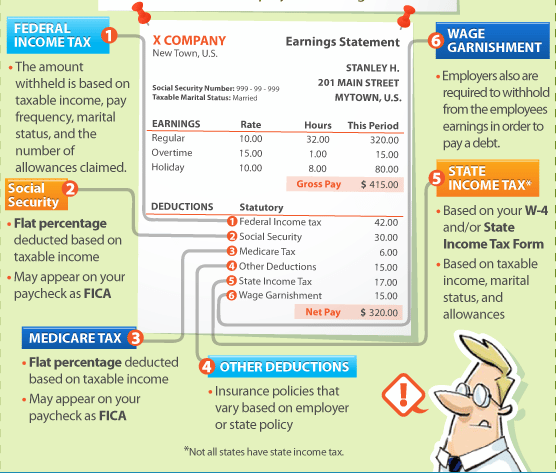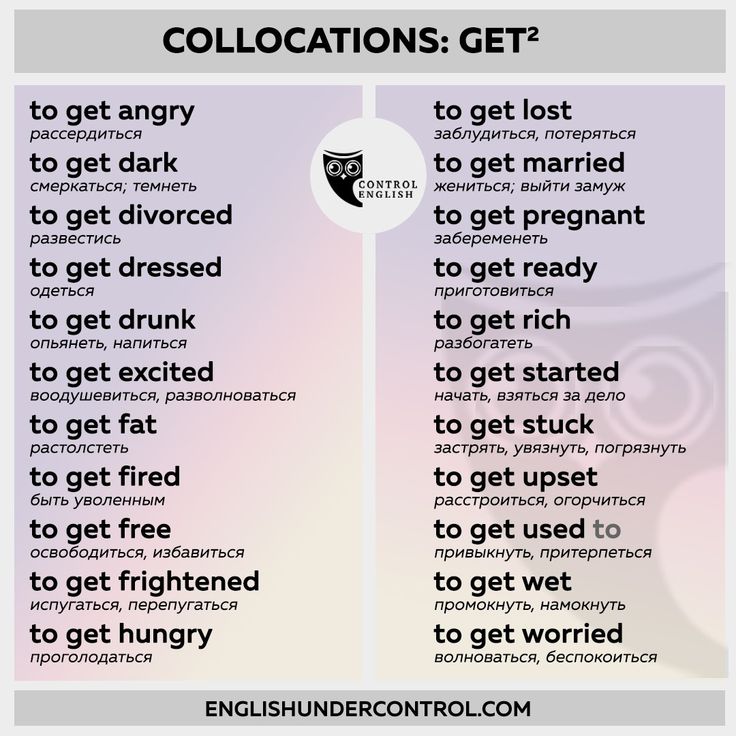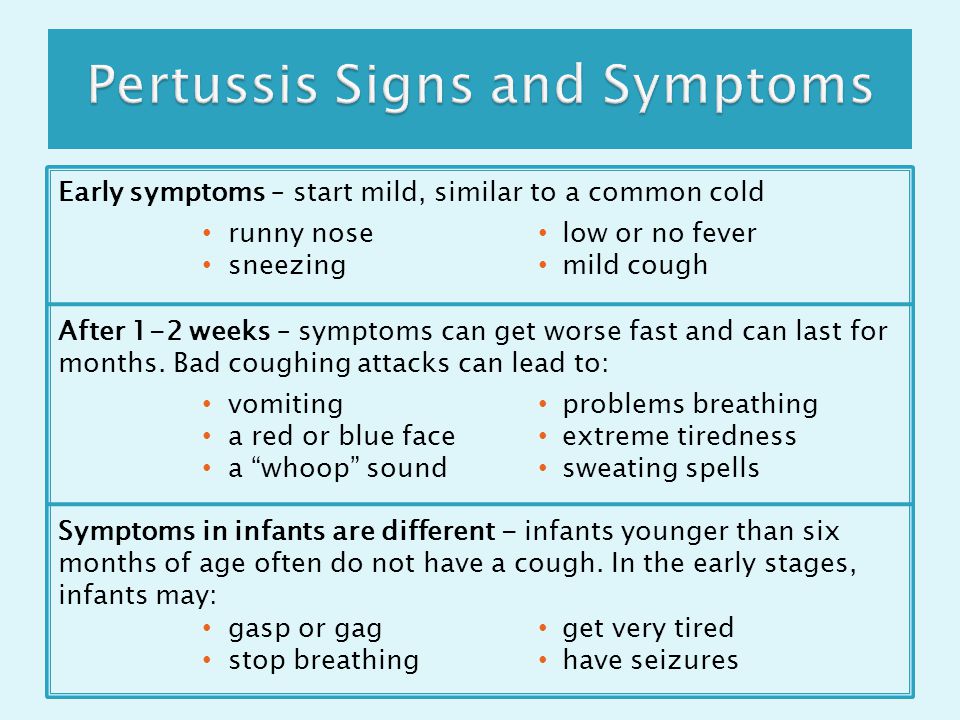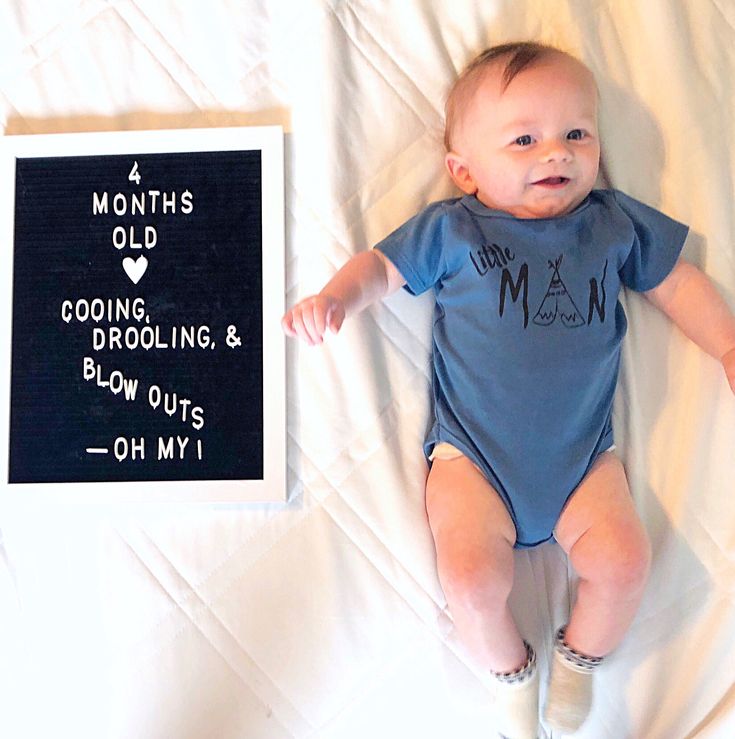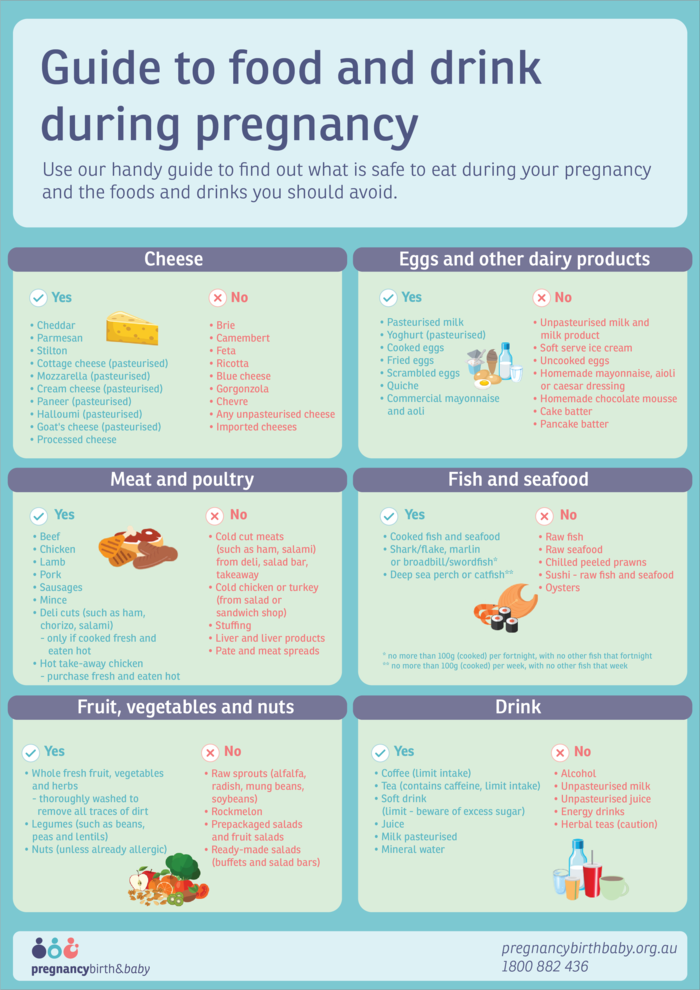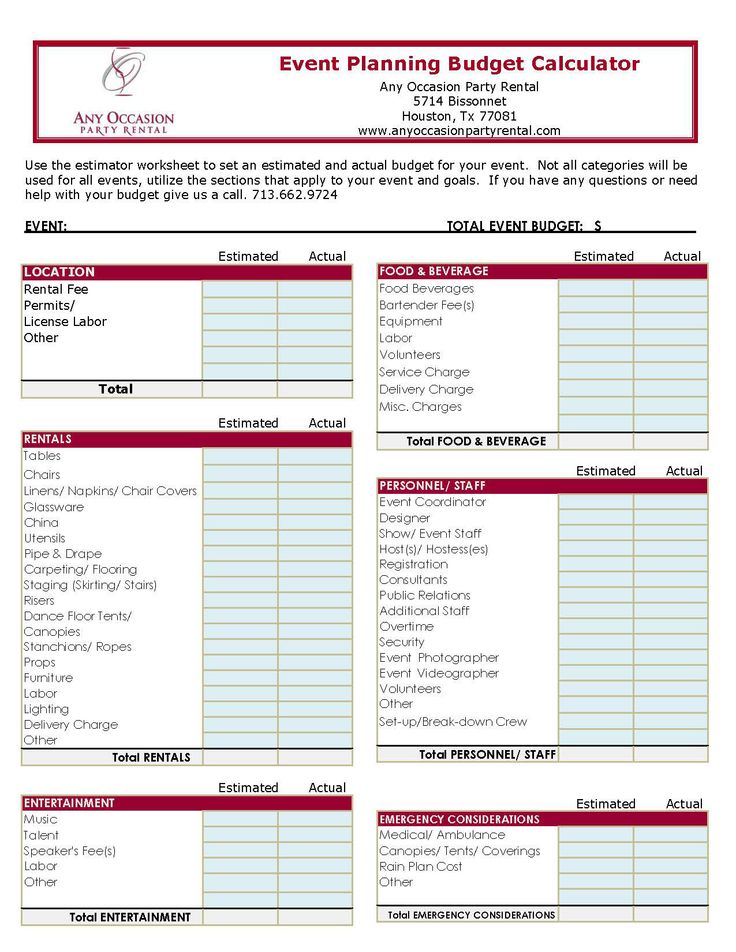How to control anger on your child
Anger & anger management ideas for parents
Anger and parents: what you need to know
Anger is a natural human emotion.
Sometimes anger can be a good thing. For example, anger might give you energy to get something done or to stand up for what you believe in.
Feeling angry and managing your anger in positive and healthy ways can also give you the chance to set a good example for your children. For example, when you take a few deep breaths or walk away rather than exploding, you show your children how to behave.
But anger can be negative, especially if it happens a lot or it gets out of control. Losing your temper when you’re angry can make problems worse and lead to conflict with others. When you don’t give yourself time to calm down, you might say or do unhelpful or hurtful things.
Also, children need to feel safe and secure to grow and develop, so being around a lot of conflict and yelling isn’t good for them.
Why parents feel angry sometimes
Raising children is a big and important job. It often involves balancing many different demands including work, family time, household chores, children’s activities and social activities. When you’re in this situation, it’s easy to lose patience and feel angry when things don’t go to plan.
Sometimes you might feel angry or frustrated with your partner, if you have one, when you don’t agree on decisions about raising children, discipline and household chores. These sorts of disagreements can lead to conflict, especially if you’re feeling undermined or unsupported.
Sometimes your child’s anger or frustration can make you feel angry. For example, if your child is angry and speaks rudely to you or won’t do as you ask, you might feel yourself getting angry too. You might find yourself attacking back in the moment and regretting it later.
And there are other factors that can make you more likely to feel angry – like illness, stress at work, financial difficulties, lack of sleep and not enough time for yourself.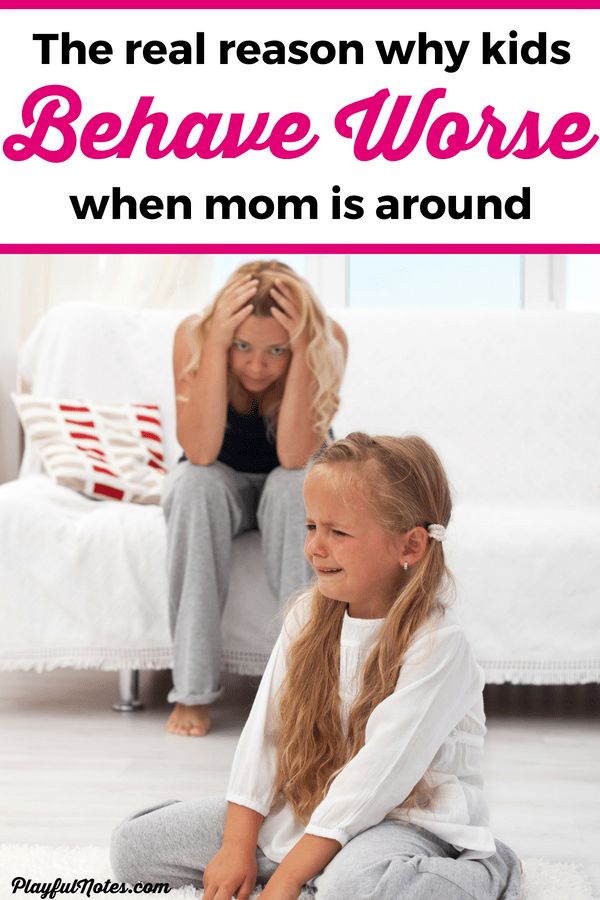
It might help you to know that many parents have navigated challenges like these with the help of family, friends and health professionals.
If you’re finding it hard to control yourself when you’re angry, talking to a health professional can really help. You could start by seeing your GP, who can help you make an anger management plan. If you’re so angry that you feel you might hurt your child or your partner, leave the room and seek help immediately. Call Lifeline on 131 114, the National Sexual Assault, Domestic Family Violence Counselling Service on 1800RESPECT (1800 737 732), MensLine Australia on 1300 789 978, or a parenting helpline.
Recognising signs of anger
Your body gives you early signs of anger. When you can recognise these signs, you can also take steps to stop your anger getting out of control.
Early signs of anger include:
- faster heart rate
- churning stomach
- agitation – that is, feeling tense or cranky
- faster breathing
- facial flushing
- tensing shoulders
- clenching jaw and hands
- sweating.
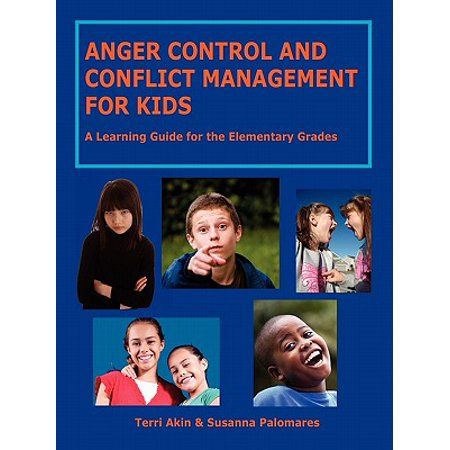
Negative thinking
Negative thinking is very common when you’re angry, and it can make your anger worse.
For example, you might have had a hard day at work and feel stressed. When you pick your children up from school, they start arguing in the back seat, which makes you feel frustrated and stressed. Once you get home, they refuse to take out their lunch boxes and put their bags away so you feel angry as well as frustrated.
Here are some negative thoughts that you might have in this situation:
- ‘No-one ever helps me – I have to do everything myself.’
- ‘You children are so naughty.’
- ‘If you behaved better, I wouldn’t feel so angry.’
- ‘Why do you want to upset me?’
If you notice thoughts like these, it’s a sign that you need to stop and do something to calm down before you lose your temper and explode with anger.
Never shake a baby. Newborns and babies have very weak neck muscles to support their large, heavy heads.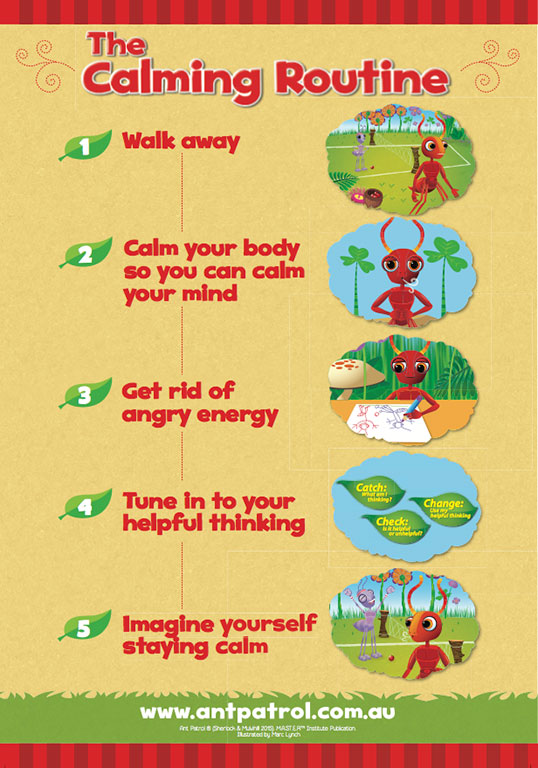 Shaking a baby – or hitting, kicking or throwing a baby – can result in death, disability or serious injury.
Shaking a baby – or hitting, kicking or throwing a baby – can result in death, disability or serious injury.
Simple anger management ideas
Step 1: identify your anger
The first step to managing your anger is to notice the early signs. It’s really important to know and say that you’re angry, even if it’s just to yourself. For example, ‘This is making me angry’ or ‘I can feel myself getting angry here’.
Step 2: try to calm down
Once you notice the early signs of anger, you can do a few things to start calming down.
Here are some ways to calm yourself in the moment, especially if you can’t step away your child:
- Try to slow your breathing. Breathe in for two seconds and breathe out for four seconds. Do this a few times until your heart rate slows down.
- If your child is being very loud, try blocking your ears or putting on noise-cancelling headphones for a moment. Then take a few deep, slow breaths.
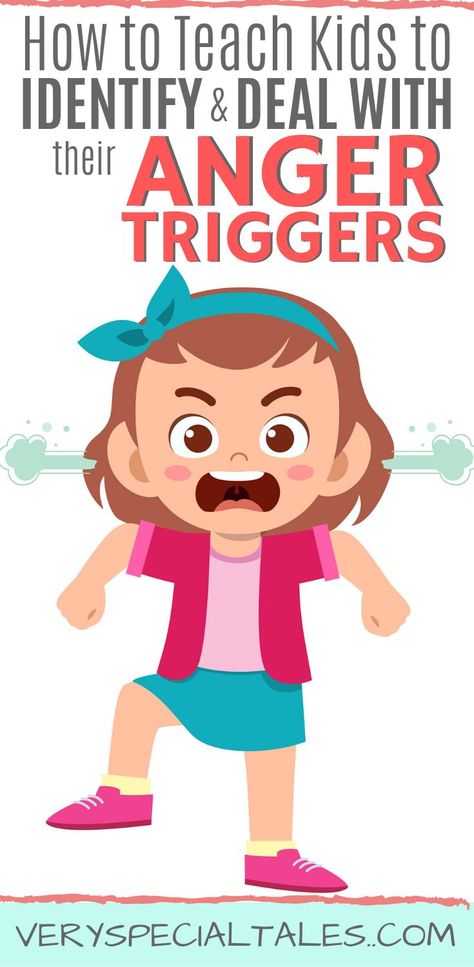
If you can take time away from your child, here are some ideas to try:
- Do something that soothes you, like listening to some music, flicking through a magazine or just looking out the window.
- Go outside for a run or walk.
- Take a warm shower.
- Talk to a friend about how you’re feeling.
Make sure your child is in a safe place before taking time away. You might be able to ask someone to watch your child while you go somewhere quiet for a few minutes.
Signs that you’re calming down include your heart rate slowing down and your muscles relaxing.
Step 3: reflect on the situation
If you feel you’ve calmed down, it might be good to reflect on what has just happened. This can help you learn from the experience and handle similar situations better in the future. Ask yourself:
- ‘How important is this? Why was I so upset about it?’
- ‘How do I want to sort out this situation?’
- ‘Do I need to do something about this, or can I just let it go?’
It’s a great idea to tell your children or your partner how you’re feeling and what you’re doing about it.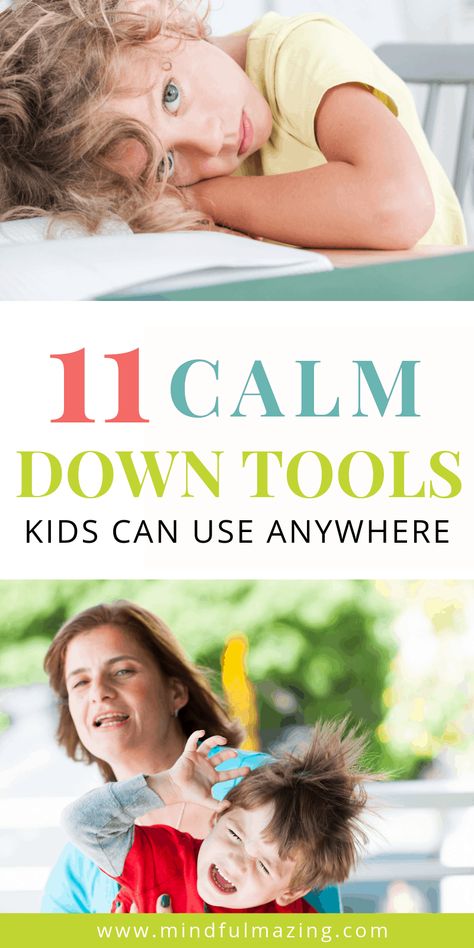 It shows them a better way to manage their anger too. For example, ‘I’m feeling angry. I need to go outside for a minute to calm down before we talk about this’.
It shows them a better way to manage their anger too. For example, ‘I’m feeling angry. I need to go outside for a minute to calm down before we talk about this’.
Setting a good anger management example for children
It’s OK to feel angry – it’s just not OK to yell or hurt someone.
If you say sorry for getting angry, it sends the message that anger isn’t OK. So it’s better to say sorry for yelling or losing your temper. This sends the message to your children that it’s OK to feel angry sometimes but it’s more important to find healthy ways of handling anger.
What to do when you don’t manage anger well
There’ll always be times when you don’t manage anger well and you yell or say things you regret.
When this happens, it’s a good idea to take a moment to work out what to say to your children or your partner. Here are some ideas:
- ‘I’m sorry for losing my temper. Next time I’ll take myself away to calm down earlier.
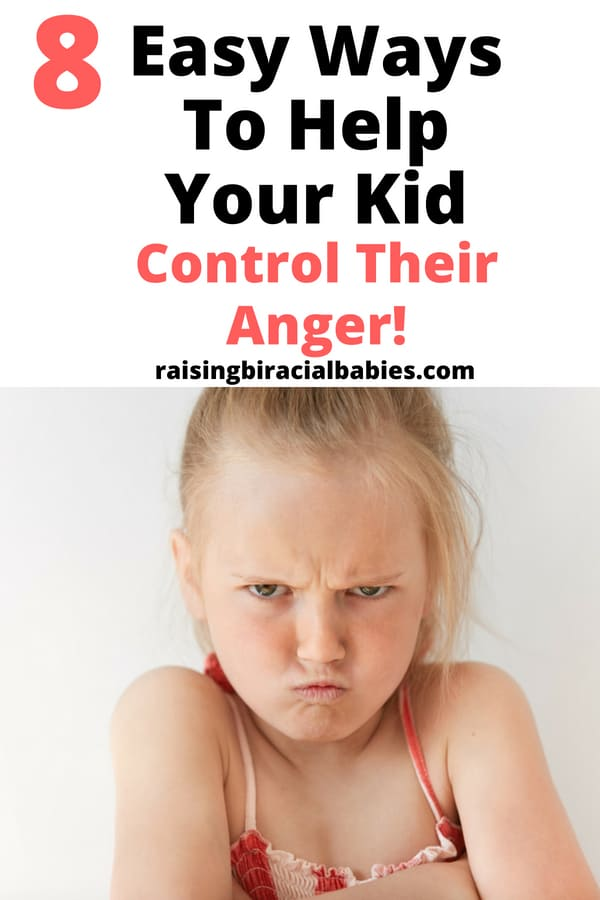 ’
’ - ‘I’m sorry I yelled. Can we talk about what just happened?’
- ‘I’m sorry. I shouldn’t have said that, even though I was angry. I should have walked away and calmed down before we talked about it.’
Looking after yourself can help you feel calmer and better able to solve problems with your children as well as your partner, family and friends.
How to Control Your Anger with Kids
Why is it so difficult to control our anger with our kids? There are many reasons, but I think it’s mainly because we allow ourselves to get angry and lose control. When we react emotionally to our kids and lose control, we’re allowing our kids to determine how we behave rather than the other way around.
Too often, parents react to their kids without thinking. Parents believe they need to get their kids under control immediately, rather than taking a moment to think, “Wait, let me first get myself under control before I respond to my child.”
The best way to prevent yourself from losing control is to understand what sets you off and to recognize when you begin to lose control.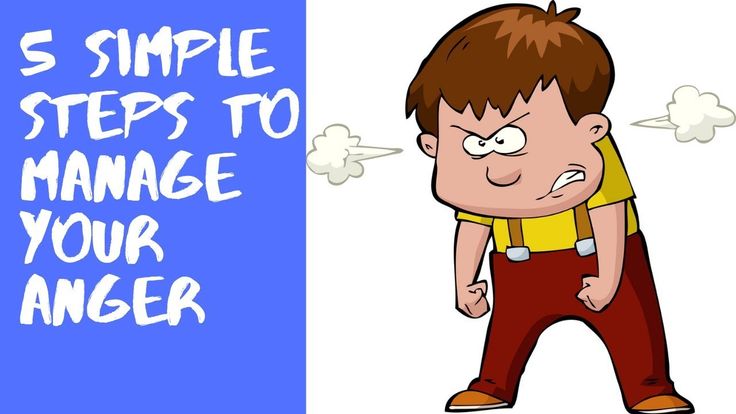 This is a critical skill for parents to have. Fortunately, it’s a skill that parents can learn.
This is a critical skill for parents to have. Fortunately, it’s a skill that parents can learn.
When you try to manage your child’s behavior instead of your anxiety, what you’re saying is, ‘I’m out of control. I need you to change so that I can feel better.
Here’s a secret: when you get yourself under control, your kids will also usually calm down. Remember, calm is contagious—and so is anxiety. It’s been proven that a parent’s anxiety about their child contributes significantly to the anxiety of their child.
Think of it this way: if you can’t get calm and in control then you’re creating the exact atmosphere you’re trying to avoid.
Here’s an example. Let’s say you’re teaching your child how to ride a bike. Your child is not getting it and is being whiny and cranky and talks back to you. Your emotions are a combination of frustrated, annoyed, angry, and disappointed. You somehow feel responsible to teach him how to ride this bike, and he just won’t cooperate.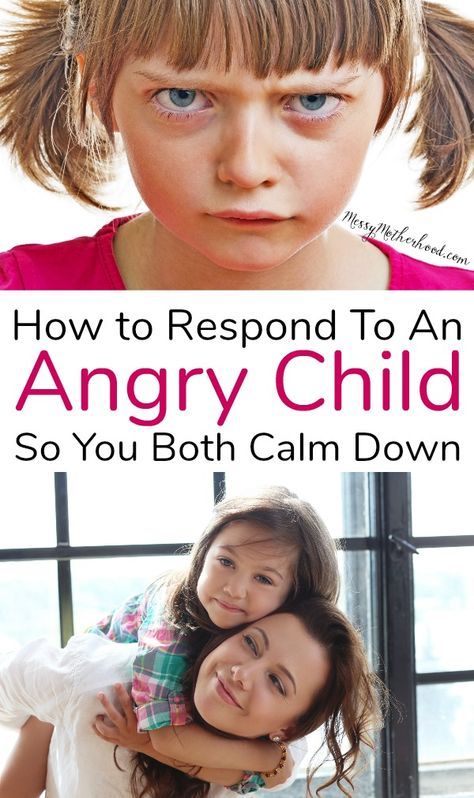
Then you yell at your child, and your child continues to struggle. Then it gets worse because he’s so anxious that he can’t concentrate. He’s feeling pushed to do something and he reacts to it by failing.
When this happens, instead of snapping and reacting, just ask yourself, “How do I stay calm so that I can be helpful for my child to get to where he needs to be?”
Remind yourself that you’re not responsible to get him to ride the bike, you’re responsible to stay calm and provide guidance. From there, you can think about the most effective way to help him learn.
In the end, if we lose control and get angry then we create the failure that we’re trying to avoid.
Indeed, when we lose control and get angry in front of our kids, what we’re communicating is “There are no grown-ups at home.” We’re saying that we can’t manage our anxiety. And when you try to manage your child’s behavior instead of your anxiety, what you’re saying is, “I’m out of control.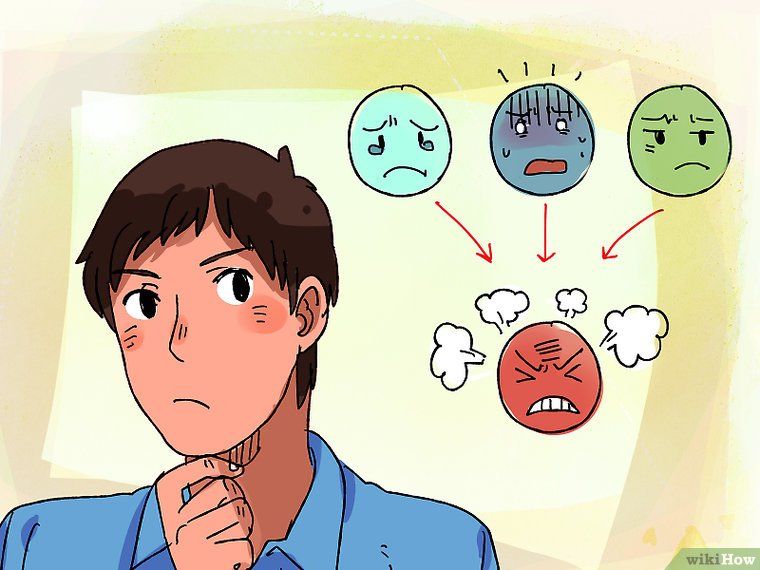 I need you to change so that I can feel better.”
I need you to change so that I can feel better.”
No one wants to lose control and get angry—we don’t do it on purpose. But it just seems to happen. Fortunately, there are things you can do to train yourself to stay calm. Below are several techniques to control your anger and stay calm when dealing with your child.
Make a Commitment To Stay in Control
Commit yourself to try to stay in control from now on. Notice what sets you off—is it your child ignoring you? Or does backtalk drive you up the wall?
It’s not always easy to stay in control and no one can control their temper 100 percent of the time. Nevertheless, commit to be calm and work toward that goal.
Usually, the first thing is to just commit yourself to not saying anything, to not reacting at all when the feeling of anger towards your child arises.
Give yourself a moment to do whatever it is you need to do to get calmer. I walk out of the room. Sometimes I go into the bedroom or bathroom, but I leave the situation temporarily. Remember, there’s nothing wrong with disconnecting. You don’t have to react to your child.
Remember, there’s nothing wrong with disconnecting. You don’t have to react to your child.
Expect Your Child To Push Your Buttons
We get upset when our kids don’t do what we want them to do. They don’t listen or they don’t comply.
I think the best solution is to expect and accept that your child is going to push your buttons and to not take it personally. In a sense, your child is doing her job—she’s testing her limits.
Likewise, it’s your job to remain calm and make sure that your child knows where the limits are and, when she exceeds those limits, that she is held accountable.
Know What You Are and Are NOT Responsible For as a Parent
Some parents are confused about what they are and are not responsible for. And when they take responsibility for things that belong to their child, they inevitably get frustrated.
Stay aware of what belongs to you and what belongs to your child. In other words, what belongs in your box and what belongs in your child’s box.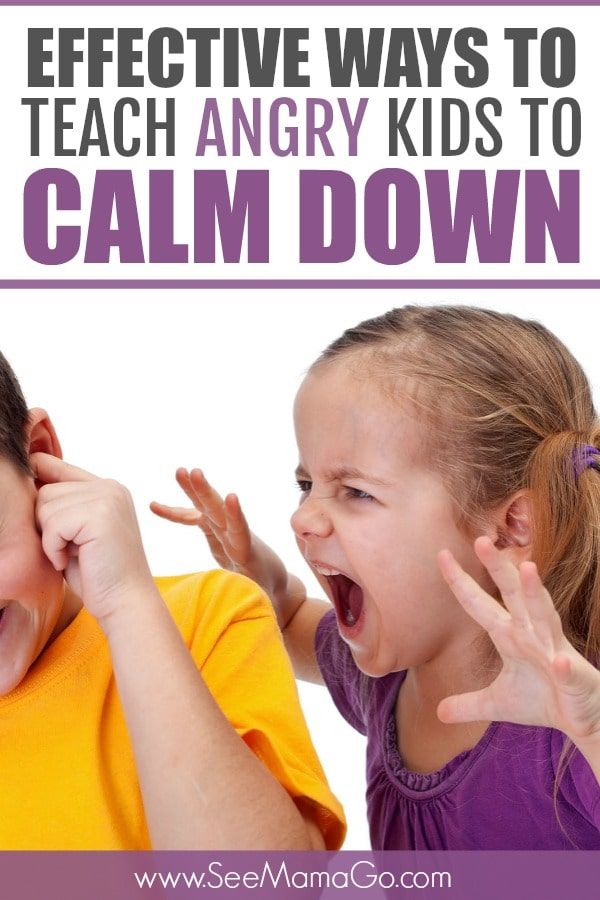
A box has boundaries, and it has personal space within those boundaries. In your box are your thoughts, feelings, and responsibilities. In your child’s box are his thoughts, feelings, and responsibilities.
Once you know whose box is whose then parents should stay in their own box and stay out of their child’s box. This doesn’t mean you don’t parent, it just means you influence your child but you don’t control him.
Your child has responsibilities that he needs to meet in life. Those are in his box. Those belong to your child, not you.
If you always think you’re responsible for how things turn out, then you’re going to be in your child’s way and that’s going to create more stress and anxiety.
A parent who successfully stays out of her child’s box would say the following to her child:
“I’m responsible for helping you figure out how to solve the problem. But I’m not responsible for solving the problem for you.”
If you feel like you’re responsible for solving your child’s problems, then he’s not going to feel like he has to solve them himself.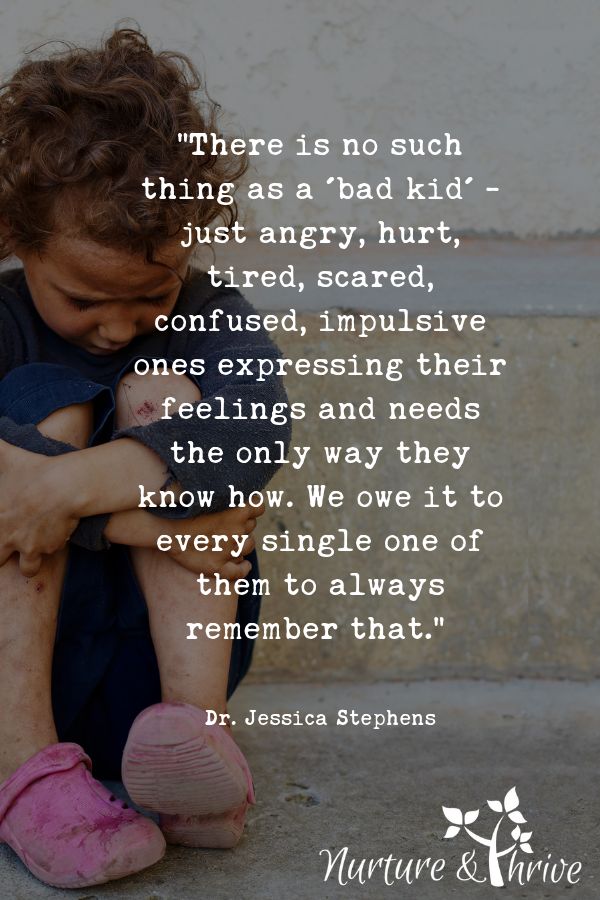 You’re going to become more and more agitated and try harder and harder. And the more you try, the less your child tries. It’s counterproductive.
You’re going to become more and more agitated and try harder and harder. And the more you try, the less your child tries. It’s counterproductive.
Parents do have responsibilities. Parents should coach their child when necessary. And parents should set the rules of the family and hold their kids accountable for those rules by giving them effective consequences. The rest is up to the child.
Related content: How to Give Kids Consequences That Work
Don’t Worry About the Future
Sometimes, we fast forward to the future and wonder if this is how our kids will be the rest of their lives. We wonder how they will make it in the real world if they won’t even do their homework.
The more we think about their future, the more our anxiety goes up. In our heads, we start worrying that we’re not doing a good job as parents. We worry that we don’t know what to do to get them under our control.
Psychologists have a term called thinking errors. Thinking errors are the thoughts we have in our head that don’t match reality and are usually negative and self-defeating.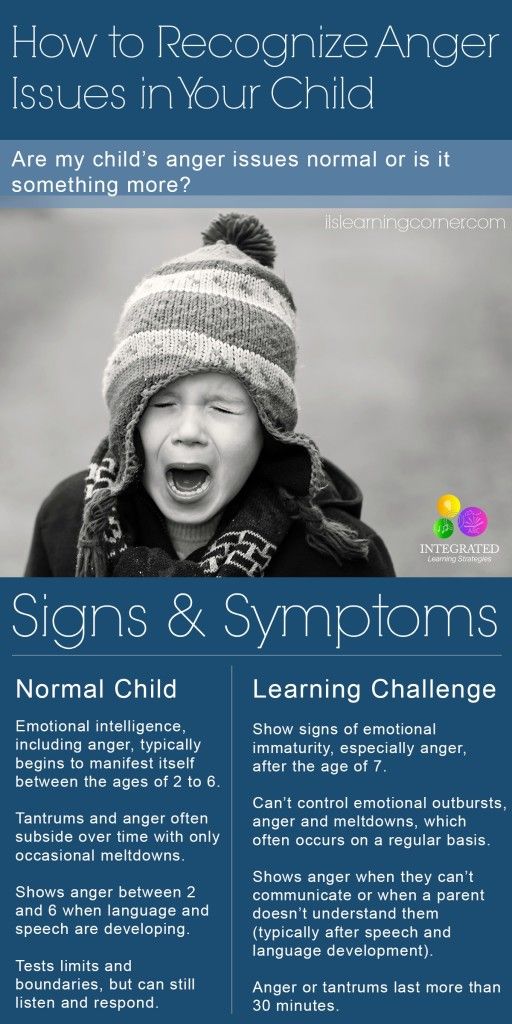 One of those thinking errors is our natural tendency to assume the worst possible outcome for a given situation. In reality, things rarely turn out as bad as we imagined. It seems our brains just love to scare us.
One of those thinking errors is our natural tendency to assume the worst possible outcome for a given situation. In reality, things rarely turn out as bad as we imagined. It seems our brains just love to scare us.
Therefore, stay in your box and focus on what you can do in the present. The future is up to your child and you don’t have control over it no matter how hard you try. And if you do try, your anxiety just goes up and things get worse for both of you.
Prepare for Your Anxiety
Notice what triggers your anxiety and try to prepare for it. You might observe that every day at five o’clock, your family’s nerves are on edge. Everyone is home from work or school, they’re hungry, and they’re decompressing.
Ask yourself: “How am I going to handle this when I know my teen is going to come screaming at me? What do I do when she asks to use the car when she knows I’m going to say no?”
Prepare yourself now for the conflict that you know is coming.
Say to yourself: “This time, I’m not getting into an argument with her.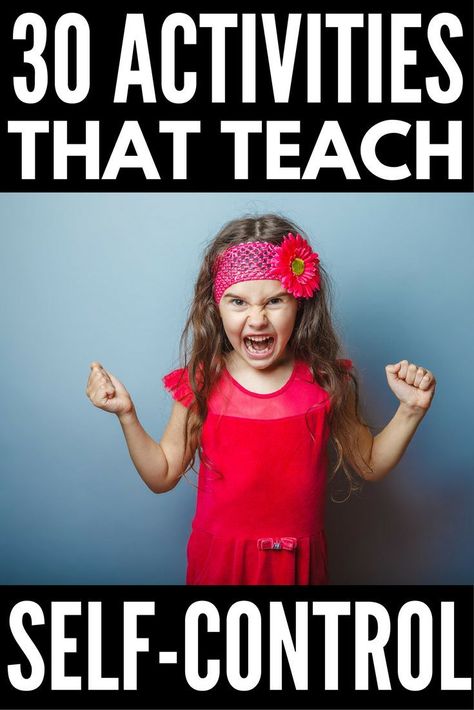 Nobody can make me do that. I’m not giving her permission to push my buttons.”
Nobody can make me do that. I’m not giving her permission to push my buttons.”
Your stance should be, “No matter how hard you try to drag me into an argument, it’s not going to happen.”
Let yourself be guided by the way you want to see yourself as a parent instead of by your emotional feelings.
Use Positive Self-Talk
Talk to yourself. Yes, talk to yourself.
In your head, you can say something like, “I’m not going to react to my child’s behavior. I’m going to step back. I’m going to take a deep breath.”
Self-talk may seem hokey, but it’s a powerful tool. Behavior psychologists have known about the power of positive self-talk for decades. You can control the voice in your head so that it produces calm instead of anxiety.
Ask yourself “What’s helped me in the past?” Start thinking about what’s helped you to manage your anxiety in the past. What’s helped to soothe you through something that makes you uncomfortable?
Say something to yourself every time you feel your emotions rising.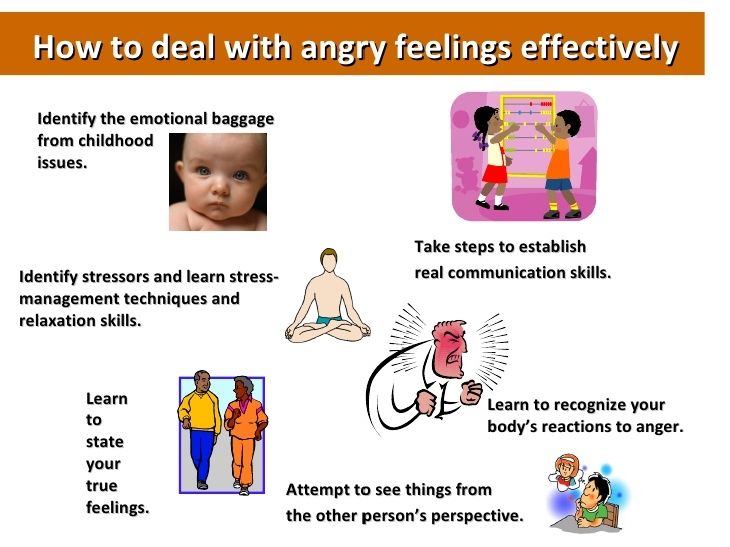 It can be anything from “Stop” or “Breathe” or “Slow down” to “Does it really matter?” or “Is this that important?” Experiment and use the words that help you stay in control.
It can be anything from “Stop” or “Breathe” or “Slow down” to “Does it really matter?” or “Is this that important?” Experiment and use the words that help you stay in control.
I keep a mental picture handy to calm myself down. I think of a beautiful place that I love that always relaxes me. Try to come up with that mental picture for yourself. Visualizing that place ahead of time will increase your ability to go there more automatically when you feel yourself becoming angry with your child.
Take a Deep Breath
Take a deep breath when you feel yourself escalating—and take a moment to think things through. There is a big difference between responding and reacting.
When you respond, you’re taking some time to think about what you want to say.
In contrast, when you react, you’re just on autopilot. It’s all knee-jerk.
As much as possible, you want to respond thoughtfully to what your child is saying or doing. Make sure that you take that deep breath before you respond to your child because that extra moment will give you a chance to think about what you want to say.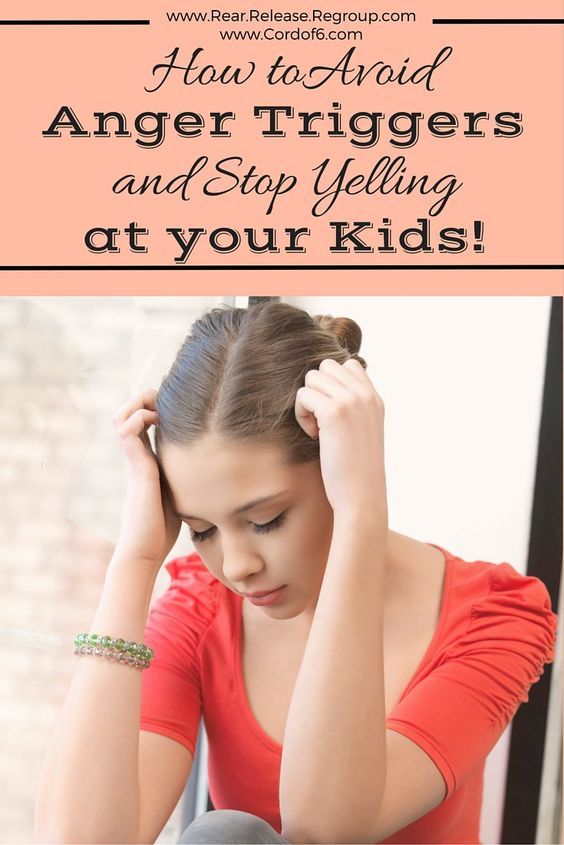
Sometimes, to keep a pot from boiling over, you just have to take the lid off for a few seconds to let it breathe.
Visualize a Positive Relationship with Your Child
Picture your ideal relationship with your child five or ten years from now. Ask yourself, “Is how I’m responding to my child now going to help me have the relationship that I want? Is my response going to help me reach my goal?”
This doesn’t mean that you give in to your child’s demands or tolerate your child’s inappropriate behavior. Instead, it means that you treat your child with respect—the way you want her to treat you. It means that you talk to your child the way you would want your child to talk to you.
Always keep the picture of the ideal relationship in your head. Make that picture the goal. Ask yourself, “Will my angry response be worth it?” If your goal is to have a solid relationship with your child, will your reaction get you closer to that goal?
Conclusion
When your child is aggravating you, your thinking process at that moment is very important. The goal is to be as objective as we can about our behavior and our child’s behavior.
The goal is to be as objective as we can about our behavior and our child’s behavior.
Ask, “What’s my kid doing right now? What’s he trying to do? Is he reacting to tension in the house?”
You don’t have to get her to listen, but you do have to understand what’s going on—and figure out how you’re going to respond to what’s going on. Then you can stay on track and not give in to angry impulses that are counter-productive.
The thinking process itself helps us to calm down. As parents, what we’re working toward is “What’s within my power to do to get myself calm?”
The less we can react, the better. And the more we think things through, the more positive the outcome will be. That’s the crux of what we’re talking about here: responding thoughtfully rather than simply reacting.
Someone once said, “Response comes from the word responsibility.” In that sense, managing our anger is taking responsibility for how we want to act rather than having a knee-jerk reaction when our buttons are pushed.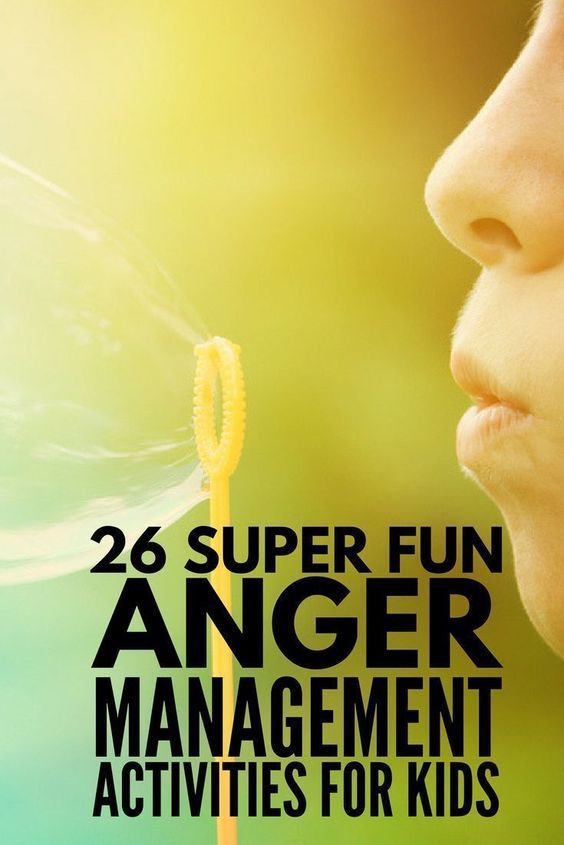
And if we can get our thinking out in front of our emotions, we’re going to do better as parents. That’s the goal.
Related Content: Out of Control Child: Stopping the Family Anxiety Cycle
Do not suppress, but control: how to curb parental anger
- Forbes Woman
- Anastasia Agarkova Author
Even the best parents can feel anger towards their child. Hiding and suppressing our emotions, we teach the child the same. Anastasia Agarkova, a psychologist at SOS Children's Villages, explains why this is wrong and shares tips on how to learn to control your anger so as not to harm your child
According to the study of 2019, which was conducted by the National Institute for Child Welfare, about 45% of Russians tend to justify and / or use physical punishment of children, 68% consider it acceptable to use “soft” forms of physical punishment (slap and slap are not considered as "abuse" of the child), about a third oppose the prohibition of physical punishment, 25% of parents resorted to punishment with a belt in their practice.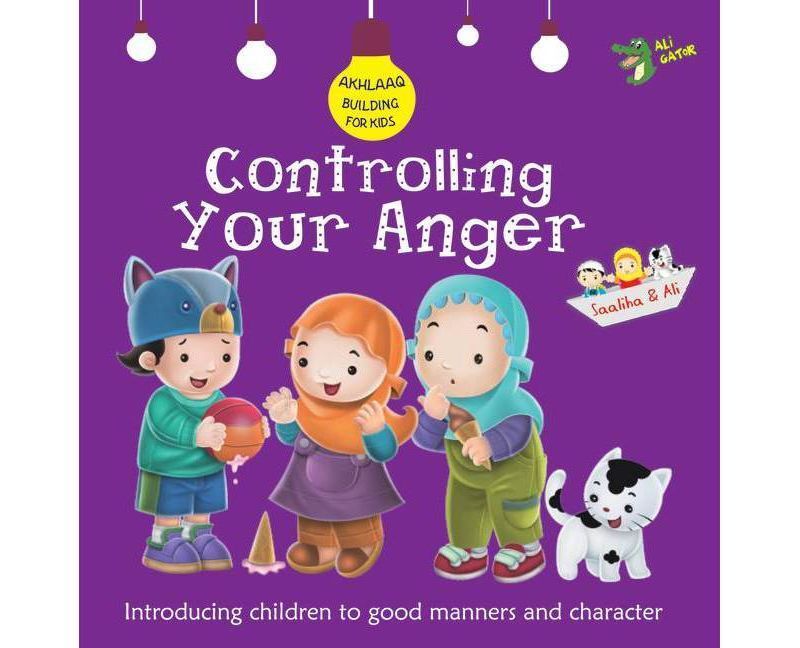
Finished reading here
“But any action always has witnesses — these are things that surround children at home,” says the description of the Talking Objects campaign, which is launched on June 1, International Children's Day, by the SOS Children's Villages charity organization. “We taught objects to speak because children are silent about it,” is the slogan of the campaign. Stories on behalf of objects that have witnessed child abuse are told by Konstantin Khabensky, Nonna Grishaeva, Nikita Kukushkin and others. nine0020
The project page contains useful information for parents and expert comments, including on the topic of controlling parental anger. The author of the idea and director: Maxim Kolyshev, a finalist of the Cannes Lions and creative director of an advertising agency of socially oriented marketing.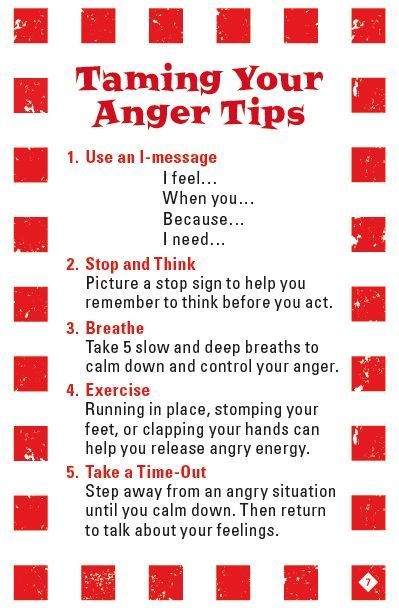
The causes of anger in parents are understandable. With the advent of a child, the familiar world of an adult changes, his comfort zone shifts, a new social status and new roles appear: father and mother. Now the whole life of parents is concentrated on the child. And as the children grow older, the tension of adults who live in a monotonous world of the same actions increases. nine0005
The generation of anger begins with irritation and dissatisfaction - feelings of lighter and not always noticed emotions in everyday fuss. When a parent is angry with a child, he begins to struggle with guilt. “I’m a bad mother,” “I can’t cope,” “I shouldn’t react like this,” “there’s something wrong with me,” all these thoughts cause even more pain and lead to an increase in emotional load. This is superimposed on the usual fatigue, depression, lack of support and help, there is a risk of going into a state of uncontrollable rage.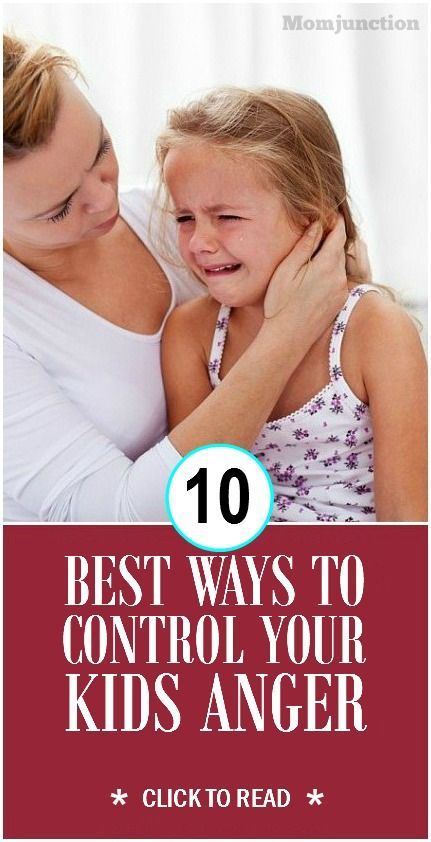 What to do? nine0005
What to do? nine0005
The first step is to separate adequate aggression from displaced aggression. Ask yourself: why did you experience such strong feelings of anger? Are there any other problems that are not directly related to the child's behavior? Perhaps you do not have enough attention or support from your partner - and part of this tension is redirected to the child?
It is important to remember that the child's actions are not aimed at making the parent angry. A small person is always frightened and traumatized by the rage on the part of an adult. And he definitely does not count on such a reaction, trying to get your attention. nine0005
You need to allow yourself adequate anger and irritation. This is an absolutely normal and natural process for every person. By forbidding ourselves to be angry, we suppress an important part of ourselves and may not notice how the cup of patience overflows and an emotional explosion occurs.
In the moment of anger
A good way to allow yourself to feel angry is to:
- Do not hold back the feeling that has arisen and do not hide it from yourself in the first place.
- Take a break and cut contact with your child. It is very important to tell him honestly that you need to calm down and get back to normal. This is the act of a truly mature person, responsible for his experiences. In addition, you set a great example for your child: feelings are different, they arise, and they can be recognized and accepted. nine0008
- Change your surroundings: take some time to focus on yourself and your bodily sensations. Breathe without holding your breath and put your hand on your stomach to help him relax.
- If possible, breathe fresh air or wash your face with cool water.
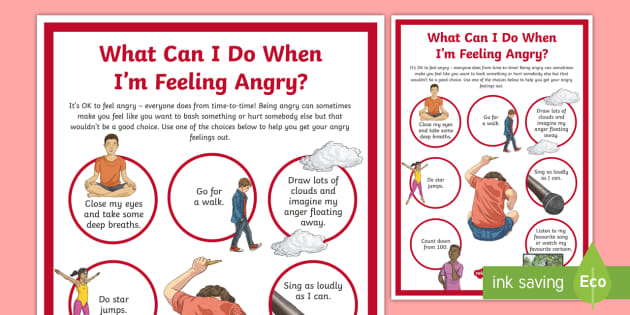 A few squats or jumps will also help you feel in your body again and disperse energy through it.
A few squats or jumps will also help you feel in your body again and disperse energy through it. - With strong emotions such as rage, it is natural to want to express them physically. They will help to discharge and throw out aggression by hitting the pillow with fists or sharp actions with paper (for example, tearing a newspaper to shreds). nine0008
- Those experiences that remain after active exercises can be written on a piece of paper. Formulate their cat: "I'm angry because ...", "I'm angry that ...".
- When you feel that you have regained control over yourself, be sure to discuss what happened with your child. Tell him what made you angry or offended, how exactly you got these feelings. And be sure to tell him that you did not want to scare him or hurt him.
“Most of all, I am afraid that children will not forget how to cry with happiness”: Irina Antonova’s rules of life
Art therapy prophylaxis
The art therapy method helps a lot, which will secure the situation.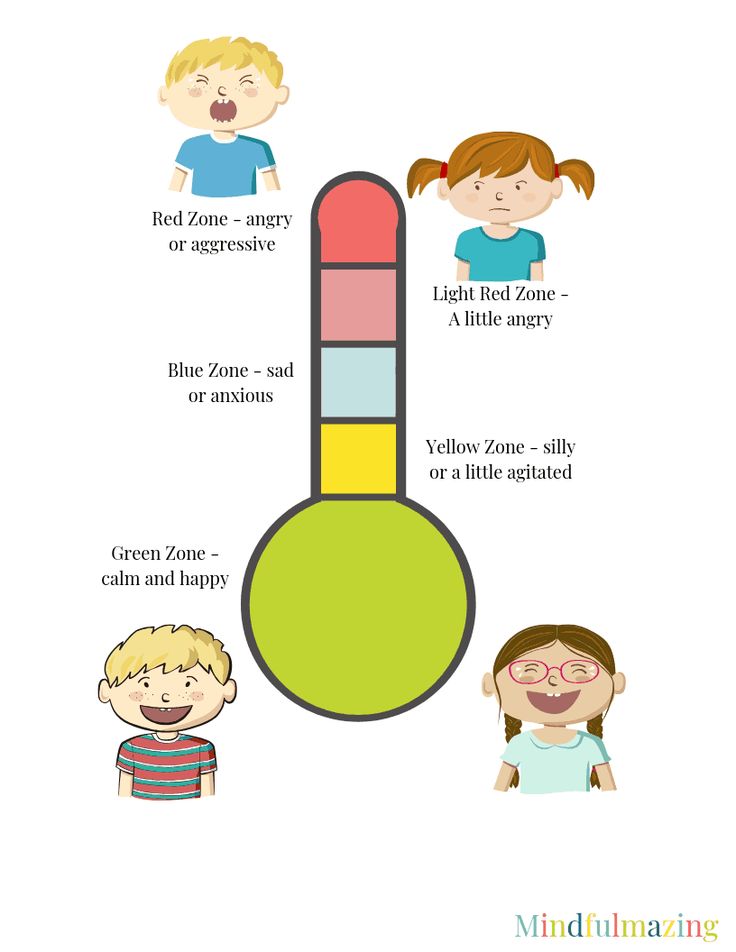 With its help, you can completely immerse yourself in your experiences and thereby prevent future outbursts of anger at the child. Do it while in solitude and tranquility. You will need a sheet of paper (A4 or A5) and jars of gouache in different colors.
With its help, you can completely immerse yourself in your experiences and thereby prevent future outbursts of anger at the child. Do it while in solitude and tranquility. You will need a sheet of paper (A4 or A5) and jars of gouache in different colors.
Think about your anger, imagine it. What color and shape is it? What comes to your mind when you think about anger? What is she? nine0005
Now feel free to dip your fingers in paint and draw your anger. It is very important to draw with your fingers, you can even use your whole palm. This is how the drawing will become a continuation of you, conveying all your emotions as much as possible. When you finish the picture, look at it and try to track the feelings that arose during this acquaintance with your own anger.
Now you can do what you want with your anger (sheet with a picture). Listen to your body and it will tell you the answer. Do whatever you want: tear, trample or drown in water. nine0005
Thus, by taking time for yourself and allowing yourself to be angry safely for others, you will feel a pleasant relief, as well as gain experience in living and managing feelings of anger.
Operators of kindness: who manages the largest private charitable foundations in Russia
6 photos
-
Anastasia Agarkova
Author
#children #psychology #violence #charity #NPO
Forbes Newsletter
Essentials about finance, investment, business and technology
7 tips for parents who can't handle anger
The whims, disobedience, accidental and deliberate misconduct of a child - there are a lot of things that can anger even the most patient parent.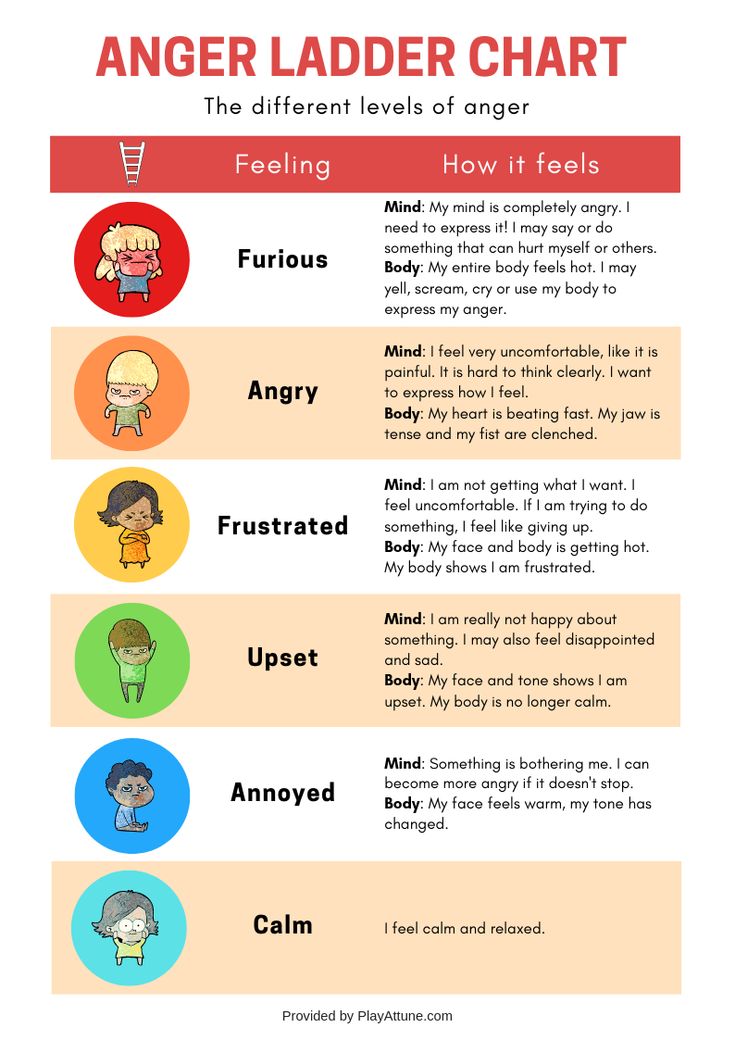 There is probably not a single person who has never experienced anger towards his own children. What is this emotion, is it so terrible, how to deal with it? Let's figure it out together with psychologist Svetlana Pyatnitskaya. nine0005
There is probably not a single person who has never experienced anger towards his own children. What is this emotion, is it so terrible, how to deal with it? Let's figure it out together with psychologist Svetlana Pyatnitskaya. nine0005
Svetlana Pyatnitskaya, preschool teacher, child and perinatal psychologist, author of educational programs for preschool children
Why anger is normal
Some parents are ashamed of being angry with their own children. Instead of dealing with it, they forbid themselves to experience anger and do not give it an outlet. Over time, when irritation accumulates, an explosion can occur.
The first thing to understand is that it is natural for a person to react to what is happening around him by experiencing various emotions. And they are not negative and bad. They either help us to act effectively in each specific situation, or they hinder us. nine0005
It is important to learn to recognize different emotions in yourself, including anger, to allow yourself to experience them: this is the only way to manage them.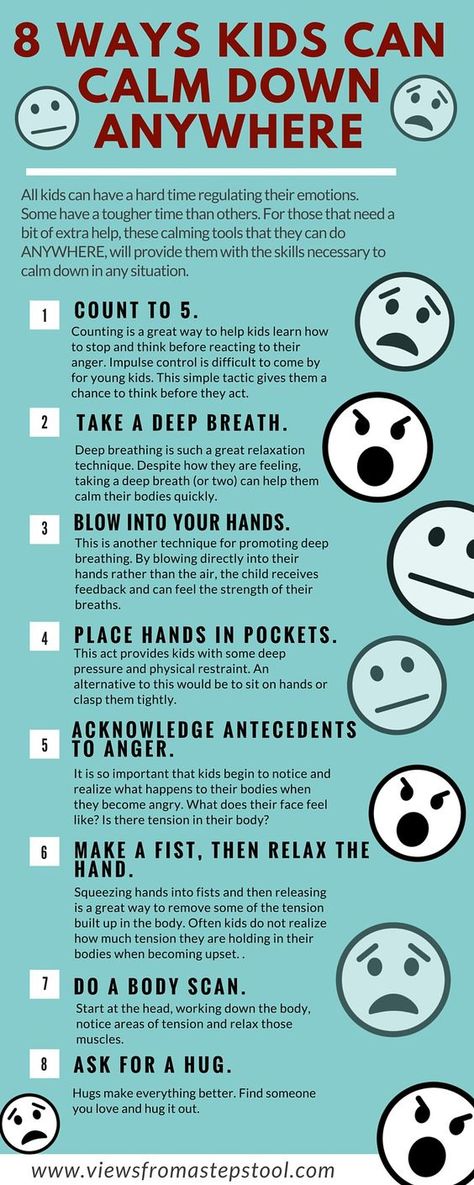 When you understand the true motives of your anger, realize what exactly caused it, it is easier for you to contain it or express it in a way that does not hurt your child. And this awareness will also help you not feel like a bad parent who experiences the “wrong” emotions. This skill is developed gradually, with simple actions.
When you understand the true motives of your anger, realize what exactly caused it, it is easier for you to contain it or express it in a way that does not hurt your child. And this awareness will also help you not feel like a bad parent who experiences the “wrong” emotions. This skill is developed gradually, with simple actions.
How to learn to accept anger
Did your child get naughty, naughty, break a vase, or get an F again? Remember all the things in his behavior that make you angry, and do this simple exercise. Take a piece of paper, write down and continue these sentences: “It annoys me ...”, “It annoys me that ...”, “I am angry ...”, “It infuriates me ...”, “I feel angry because ...”, “I I hate ... "," I am covered with rage when ... ".
Our brain is designed in such a way that any change in our emotional state causes our body to react. This exercise contributes to the actualization of sensation at the bodily level. And this, in turn, helps to recognize that there are situations in which we experience anger.
nine0005
Did you have any discomfort while doing the exercise? And where do you "hurt"? Put your palm there and start breathing slowly through your nose, exhale through your mouth. With each new breath, you can feel how the unpleasant sensation in the designated part of the body grows larger and larger, gradually growing to the size of the whole body: “I feel anger. I allow myself to experience it. I accept anger. I accept it and realize it." Gradually, the discomfort will pass. After all, when you admit to yourself that you have the right to experience anger - and this is normal, then its intensity will decrease. nine0005
How to deal with anger and not harm a child
What to do if you are ready to take it out on a child, regardless of the seriousness of his offense, and even more so if an outburst of emotions has already occurred?
Stop!
When we are very angry, we cannot think logically, but we are able to act in a temper. Think about what can stop you in such a situation? A memory of how scary it was when you were scolded as a child? The kind of baby that causes pity? These images will help you cool your ardor and control yourself.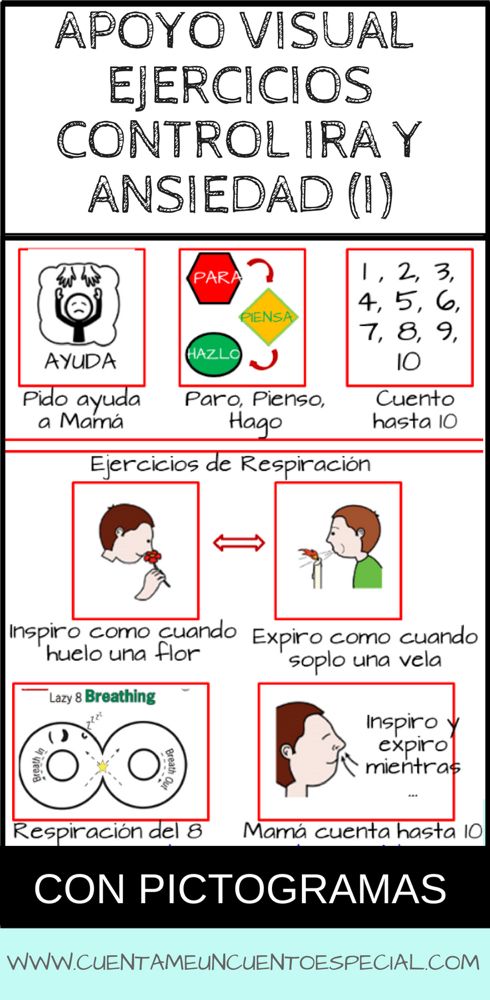 nine0005
nine0005
Switch
Think of an action that will help switch your attention. Cut off contact with the child. Change the environment: go out into the fresh air or at least onto the balcony. Wash off with cold water. Call a person who won't judge you. Swear several times. Crumple and tear the newspaper into small pieces. Inhale through your nose to a count of seven, exhale through your mouth to a count of eleven. This exercise will help you "reset" the nervous system.
Postpone an important decision
Try not to threaten or label your child. “You will sit at home during the holidays”, “I will take your tablet away from you”, “What a fool you are!” or even "You are a disgrace to the family" - refrain from such words, no matter what your child has done. You can tell him that you decide what to do with him when you come to your senses. So you serve as an example for him: anger can and should be dealt with constructively, and an adult is able not to chop off his shoulder.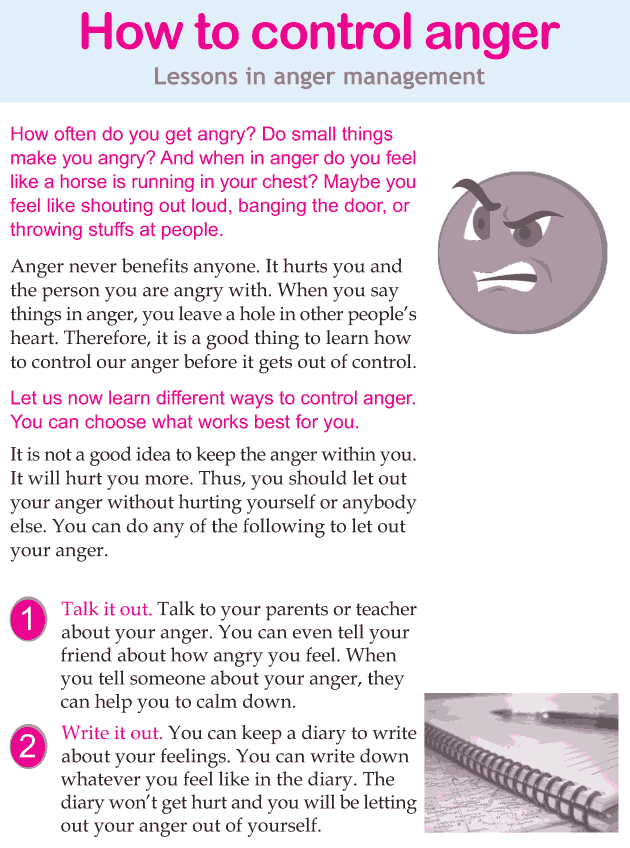
Listen to your body
Switch to your bodily sensations by placing your hand on the part of the body where anger is felt most strongly. Breathe slowly and deeply. nine0005
Deal with the situation together
When you are sure you have calmed down, talk to your child. Explain to him what exactly made you lose your temper: “You were playing next to the road, I was scared for you”, “You are skipping swimming lessons, I was offended that you were deceiving me”, “You broke this cup, and she broke me was very dear as a memory, I was upset.” Be sure to tell the child that you did not want to scare him, hurt him with your behavior.
Prevent burnout
Do you notice that you have become touchy, irritable, do not hold back your anger and easily lash out at others, scold your child for the most insignificant trifles? Perhaps you are close to a state of emotional burnout. How to help yourself? First of all, you need to understand what you need to be in shape: enough sleep, light physical activity, the opportunity to retire with a book? If your condition is associated with fatigue, with a lack of time for yourself, try to delegate some of the responsibilities.
